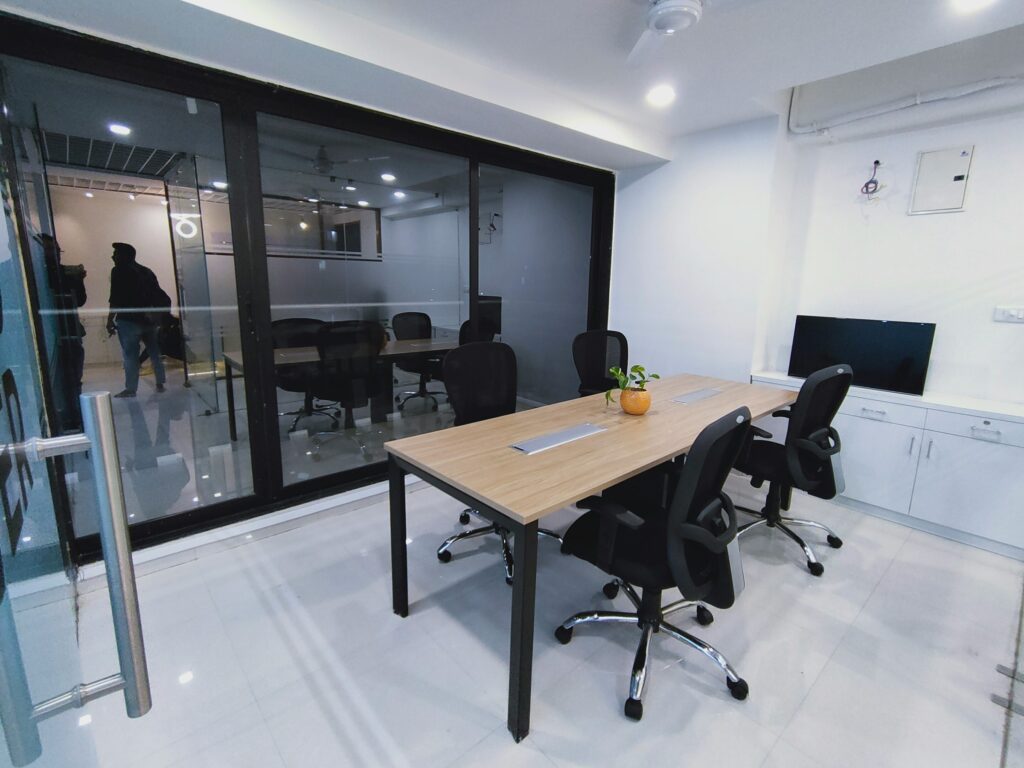
“What kind of office space is right for me?” many company owners and entrepreneurs are thinking in a world when the workplace is fast changing. Choosing between a serviced office and a private office will have a big impact on your daily operations and long-term profitability whether you’re launching a company, expanding your team, or just bored with working from your kitchen table.
Considering your options will help you to be in the right spot. This smart business book breaks down all you need to learn about serviced and private offices so you can make a confident, educated decision that satisfies your needs and those of your team.
What Is a Serviced Office?
A serviced office is a fully equipped, ready-to-use workstation featuring all you need to get going right away. Workstations, seats, Wi-Fi, conference rooms, cleaning, and reception staff are one monthly expense. These spaces are often part of larger coworking environments, but you still get your own enclosed, professional office space.
Think of it as the “just bring your laptop” approach to office leasing.
Why Businesses Love It:
- Flexible leases (monthly, short-term, or even daily)
- Minimal upfront costs
- Access to premium amenities like lounges, coffee bars, and event spaces
- No headaches over maintenance or utility bills
Whether you’re a freelancer needing a professional setting or a small team on the move, a serviced office is all about ease and agility.
What Is a Private Office?
On the other hand, a private office is a focused workspace just for your business. You oversee the layout, the branding, and the space. Private offices can be leased in traditional commercial buildings or within coworking spaces that offer enclosed options.
What Makes Private Offices Stand Out:
- Full control over the environment
- Enhanced privacy and security
- Room to customize branding and layout
- Better suited for larger or more established teams
A private office offers the structure and protection you need whether your company deals with sensitive data, client confidentiality, or just needs room to develop over time.
Serviced vs Private Office: What’s the Real Difference?
The main distinctions are accountability, privacy, and flexibility. While a private office gives more long-term stability and control but may need more setup and management, a serviced office is all-inclusive and incredibly adaptable. Let’s break it down with a side-by-side view:
| Feature | Serviced Office | Private Office |
| Lease Term | Flexible (short-term) | Fixed (often 6-12 months or more) |
| Setup Time | Immediate (fully furnished) | May require furnishing/setup |
| Customization | Limited | Full control |
| Maintenance & Utilities | Included | Usually separate |
| Privacy Level | Moderate (shared amenities) | High (exclusive use) |
| Ideal For | Startups, remote teams, solo professionals | Growing companies, law firms, consultancies |
Pros and Cons of Each Option
Serviced Office Pros:
Easy move-in with no downtime
- Access to shared amenities like printers, kitchens, and lounges
- Great for testing new markets or temporary projects
- A professional environment without the overhead
Serviced Office Cons:
- Limited customization options
- It may lack the same level of privacy as a dedicated office
- It can become costly over time if used long-term.
Private Office Pros:
- Complete control over branding, decor, and layout
- Ideal for confidential meetings or sensitive industries
- Consistent, focused environment for your team
- Long-term stability and ownership feel.
Private Office Cons:
- Higher upfront costs (furniture, decor, tech setup)
- Long-term contracts require more commitment.
- You’re often responsible for maintenance and utilities.
Which Office Type Works Best for Your Business?
This really depends on your goals, budget, and the nature of your work.
You Should Choose a Serviced Office If:
- You need a quick setup with zero hassle
- You value flexibility and low commitment.
- Your team is remote or distributed and only meets occasionally.
- You’re testing a new city or market.
You Should Choose a Private Office If:
- Your business handles sensitive information
- You want full control over your space and setup.
- Your team needs a quiet, consistent work environment.
- You’re planning to stay in one location long-term.
Cost Considerations
While a serviced office might seem more expensive on the surface, remember that it includes just about everything — rent, furniture, Wi-Fi, cleaning, and even coffee in many cases.
A private office, though potentially cheaper per square foot, comes with added costs like:
- Furniture and decor
- Internet and IT support
- Utility bills
- Office supplies and maintenance
The key is to compare the total monthly cost for each option and see what makes sense based on how you use your space.
Making the Smart Choice
If you’re still torn, consider doing a short trial with a serviced office. It’s a great way to test the waters before committing to a private office lease. Many businesses actually start in serviced spaces, and once they’ve grown and stabilized, they transition into private offices for more control and brand identity.
In each case, selecting the correct office marks a turning point. It’s about building a creative, motivating space where your staff can flourish, not only about desks and Wi-Fi.
Final Thoughts
Choosing between a serviced office and a private office isn’t about which is “better” — it’s about which is better for you. A startup founder with a remote team has different needs than a law firm handling sensitive client files. Spend some time evaluating your priorities, charting your team’s process, and thinking through your budget.
The proper decision transforms your office environment from a place to live to a strategic asset, driving development, concentration, and creativity.
Visit Glamor and Living for more useful insights and lifestyle tips.




